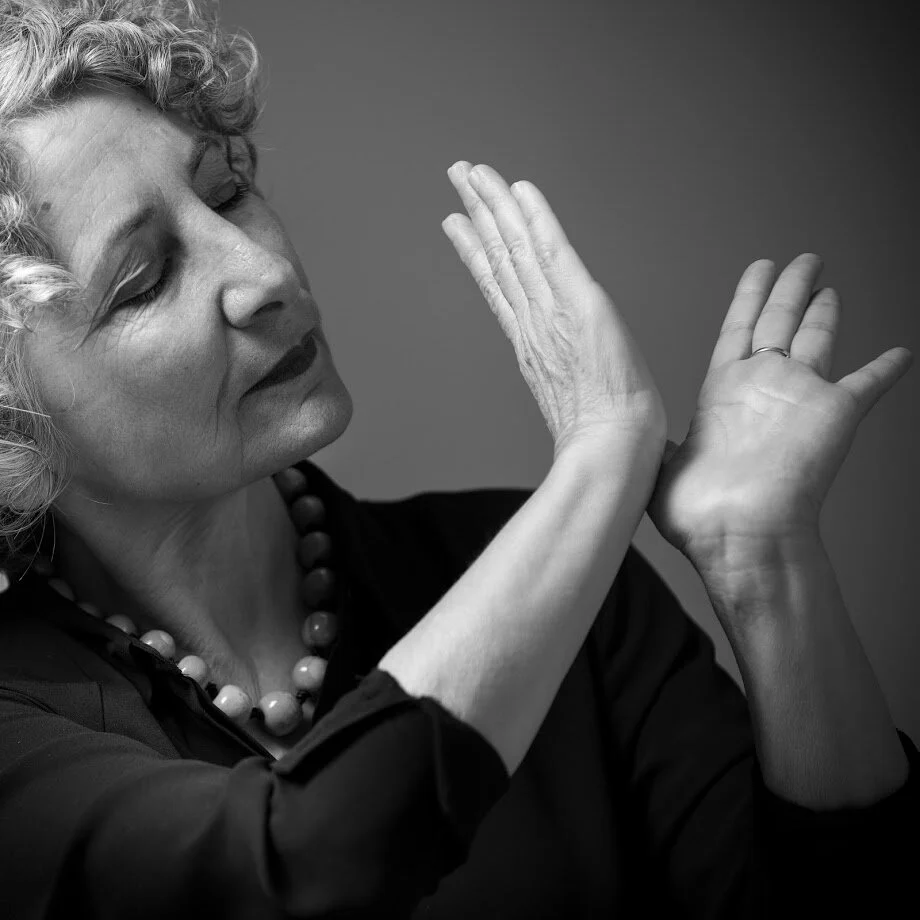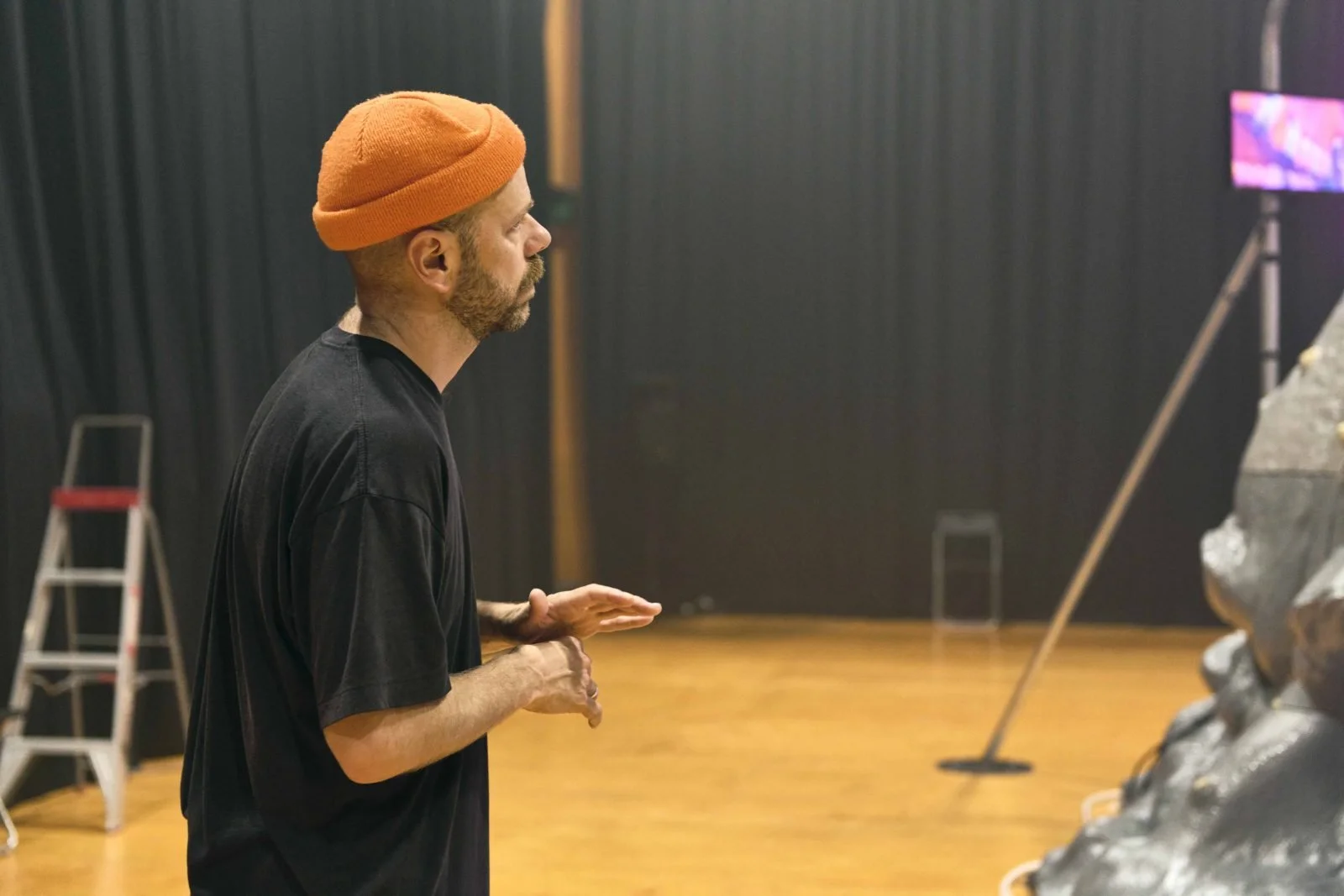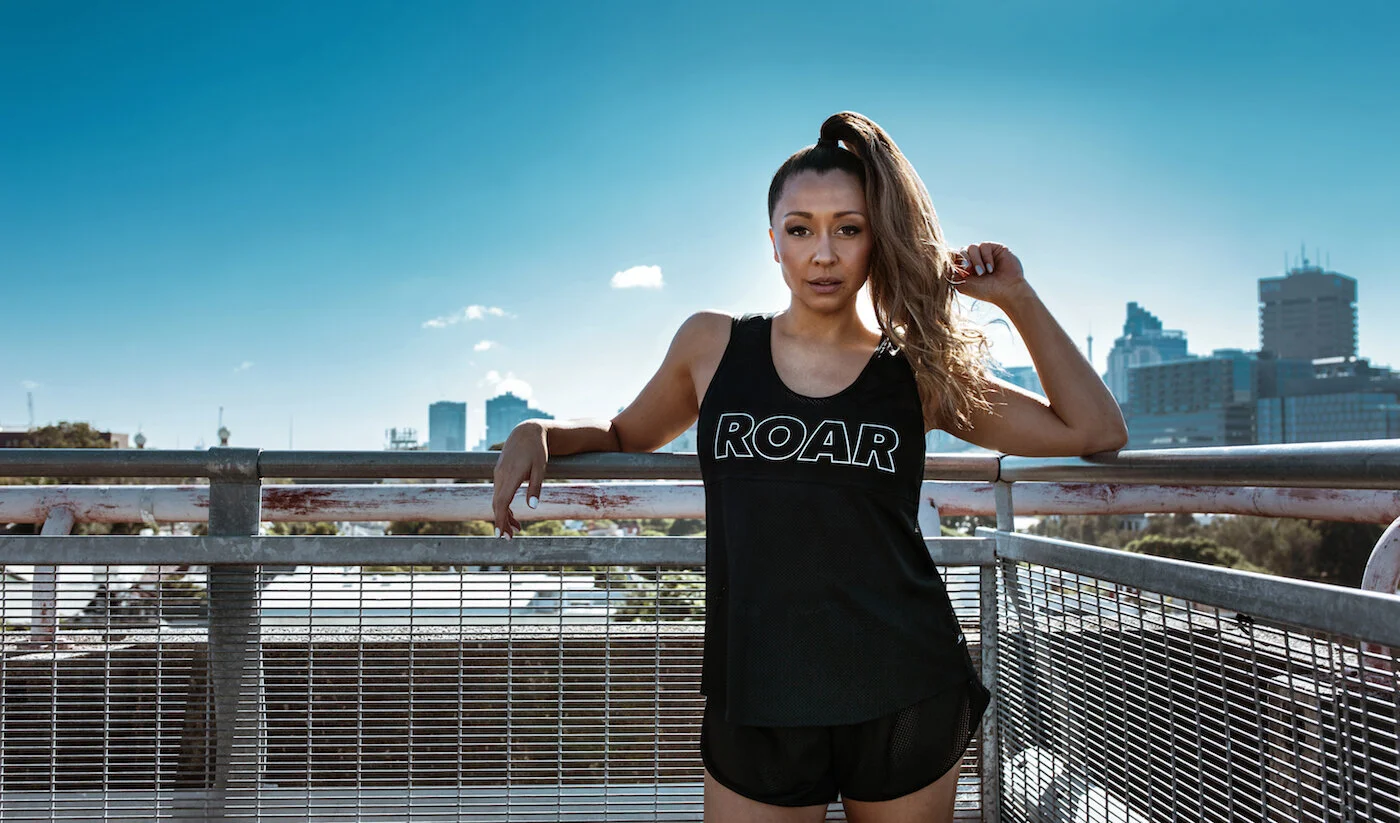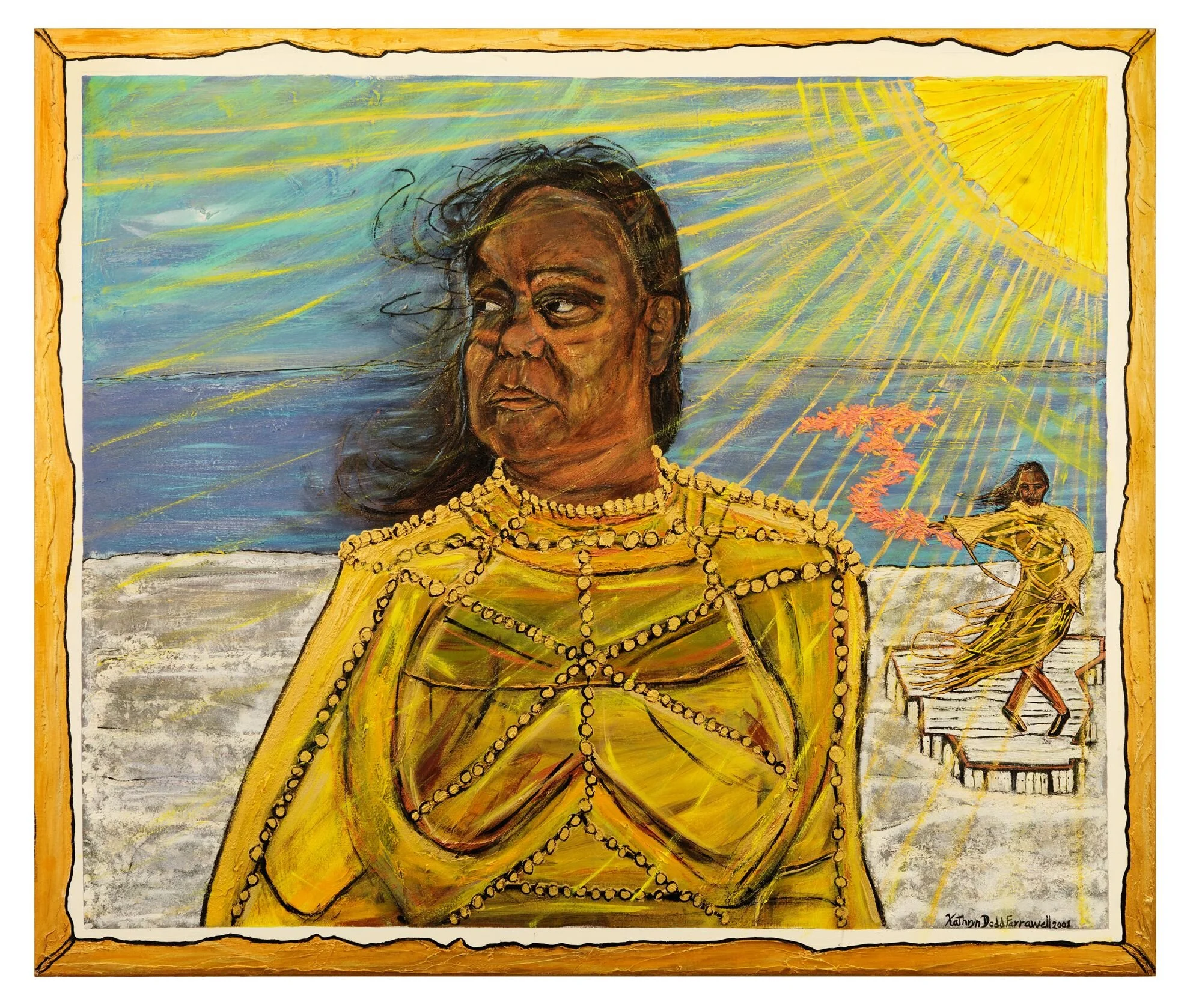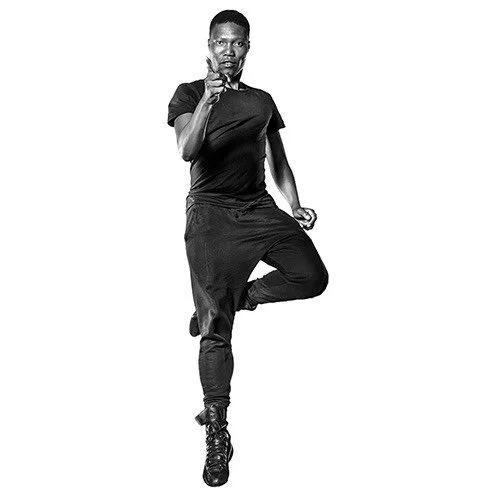This transcript is from an interview that was first published on 11th of October 2020. This transcript has been edited slightly to help with clarity, the audio of this episode and more information can be found here. This interview was between Edna Reinhardt and Delta Williams
Transcripts are a new initiative of Delving into Dance, seeking to make the rich audio archive more accessible to deaf audiences and for educators. These transcripts are paid for through the support of audiences and supported by the Victorian Government through Creative Victoria, and the Australian Government through the Australia Council, its arts funding and advisory body, as well as audience contributions. It would be wonderful to have your contribute to this initiative. You can contribute here.
Delta: [1:16]
Extending from the topic of yoga and creative dance, what was your introduction to these disciplines?
Edna Reinhardt: [1:22]
So, in my earlier years, I flirted with contemporary dance and various dance styles. And when I was about 22, someone suggested that I go to Mangala studios. I went to Mangala studios, and I was completely taken by the relationship between yoga and dance. And taken by Dorotea Mangiamele’s teaching style, was very inspiring to me.
Delta:
Yeah, beautiful. Because Yeah, the form of creative dance that was practiced that was developed by Dorotea Mangiamele and the schools were established, Mangala studios was established in the 1970s in Carlton. And so what did you most identify with when you went to Mangala and started practicing with Mangiamele?
Edna: [2:23]
Yeah, I think actually, for myself, perhaps, coming from a European background, and the fact that she came from a European background and her interests in the broader arts were quite intense. So, yoga classes often involved talk of art, talk of music, talk of poetry, and the dance as well. So there was that combin - the culture underpinned both of those disciplines. And I found that really attractive, and enriching.
Delta: [3:10]
Did you find this to be very unique at the time during the 70’s and 80’s when you were practicing the work? Did you find other schools were incorporating these elements as well? Or was this really special?
Edna: [3:20]
Yeah, it was really special, it was unique. And that was the only style of creative dance I had ever done. And, and the fact that I had never heard of combining yoga with creative dance before - and the yoga - the mindfulness aspect of yoga was a perfect psychological and physical warm up to improvisation.
Delta:
Yep, definitely. And do you feel that gaining a practice of yoga, as well as dance, do these two like crossover and really enrich each other and support in more of a natural way? And would you recommend that for contemporary dancers as well?
Edna: [4:12]
Yes. So I mean, it's very personal, you know, what speaks to you, but yoga did speak to me and still does to this day, you know, I still practice every day. And I think that the, the listening to the body and the mind and the breath, that trio of awareness is incredibly beneficial for a dancer.
Delta:
Yeah, I definitely agree from my personal practice that that really does enrich it for sure. And I also try to incorporate those elements into my classes as well. With that being said, did you like complete specific training with dance or yoga in order to like fulfill this as yourself as a teacher?
Edna:
I didn't in a formal way, because that just wasn't available in 1976, there was barely anything going on. So it was really a matter of being - which I think in those days, most of us were doing - we really apprenticed ourselves to our teachers. And so I, I didn't sort of think, ‘Oh, I'm going to apprentice myself to Dorotea Mangiamele’, but I, I was very, very attracted to what she was doing. And I made it my mission to sort of shadow her. So I went to every single class that was available, as an adult, and I assisted her in every single children's class that was available. And so it was a very intense period of learning for me. And then, really, the rest of my dance education has been, you know, going to training in other styles. But really, more importantly, just my own experience of teaching. So really, that's my whole life has been teaching, my whole adult life has been teaching and so therefore, the students - sounds terribly cliche, but actually, the students are my greatest teachers, because I go into a class and I think, ‘Okay, so we're going to do this, and this and this, and this’, And then a student does something quirky and completely different and the class segues into that other style and I find that inspiring. And one of the beautiful things about the creative dance, I think, is that, well, creativity - is the fact that it's like, the studio is like a laboratory and you're just keep on creating a language, dance language all the time. And, and suddenly, in a class, a new word pops up, or a new phrase, physical, not, not verbal. And it's exciting. You know, that's really what it's about.
Delta: [7:55]
I think that's so beautiful to summarise that in such a way, and everything that you just said, just has a very unique understanding and experience of what a dance class can be like, as you know, a lot of us are more exposed to classical styles of training, and henceforth, more classical styles of teaching, but just wanting to go back a second, because also, as you stated, initially, that you had such a unique, you know, apprenticeship and becoming a teacher and becoming a dance teacher as well, which is very rare, and almost unheard of, for a lot of people in this era where everything has to be certified. You have to complete specific trainings and spend a lot of money and go to uni. And it's so unique to have actually just been able to be exposed to like, this is how it is done. Do you think you would have benefited from actually having a more modern specific style of training? Or is this what you really - the more the more practical hands-on element?
Edna: [8:53]
I'm not sure because I think it's really different for everybody. I wouldn't say that it was better or worse, because I am exposed to a lot of dance teachers, they work for me, and they all seem to have, I'm interested in teachers who were unique, and they could have gone through the VCA and be unique, or as one of our teachers, could have gone through the Australian Ballet and be unique. You know, she's quirky. This is just the way that my life evolved. And I feel incredibly grateful. I feel very, very grateful for the training that I had and the way that I had it. I was lucky.
Delta:
Yeah, for sure. It's really beautiful.
Edna: [9:51]
And I think it's it is all about the teachers so you know you, you might have a teacher, you may or may not have a teacher at an institution that really, really inspires you. And, you know, perhaps changes your life by the way that they've guided you. And so that was really what happened for me.
Delta:
Sure. I think that also just stems into who else has inspired you through this journey? You've spoken about Dorotea and other teachers and students? Do you want to just elaborate on that a little bit further?
Edna: [10:26]
I'm not sure because I really, um, I think I, I just pick things up from the environment around me. And so some of the teachers who teach for us, really inspire me. Actually, they all do, you know, because that's why I employ them to teach for me, because each individual has something that is unique and interesting, they're not kind of run of the mill, you know, just run of the mill, eyes and teeth dancers, as you know. So, you know, I'm inspired by choreographers and dancers, you know, Batsheva Dance Company, or Nederland’s Dance Theatre, or, you know, I've attended many, many dance performances in my life and gone away feeling inspired, and enriched and that has fed into my teaching, of course,
Delta:
yeah, definitely. I think it's so, yeah, it's very critical for people to be exposing themselves to artworks and pieces of the art style that they're really identifying with. Definitely, I find going to performances is such an important element. And so beautiful to be able to support each other in these communities.
Edna:
I can equally - Sorry to interrupt, but I can equally be inspired by a three-year-old. You know, just the, the way that they might move when they hear a piece of music, and, you know, very unfiltered sort of way.
Delta: [12:27]
Definitely, and going along with that train of thought, let's actually discuss that creative dance in itself as well. Because, you know, people might be questioning is creative dance, like improvised dance, or what are the elements that really define a creative dance class, and you can do that, whatever example for any age group, and maybe going with a three year olds, like that really critical, foundational age with being introduced to dance. What really makes that class?
Edna: [12:55]
So, I think sometimes it's a little bit frustrating, because the term creative dance is so broad, you know, it can be, it might sort of bring up images of, you know, let's all be a tree and wave our arms around or, you know, something that is formless. But I'm, personally I'm not interested in a formless style. So, you know, just say, if you want that example of early childhood, which I find very interesting. The beginning of the class is about mindfulness. So, I try to set something up where children come into the room and have a have a sense of this being a special place. And as you know, you know, having grown up through it, it might be something about the way we set the room up with props, or whatever. So we're not just going into an ordinary room, we're going into a dance room. And so, you know, might do something with my, you know, just whispering or we might do some design things. And then we usually in my classes, each of the teachers does it differently, but my structure is that then I do yoga with the kids in a circle and get them into their body and give them a sense of what is possible with their body in an unusual way. So ‘Wow, I can lie on my tummy and hold my feet backwards.’ Or, you know, ‘I can pick up my foot and put it over my shoulder’ or that kind of thing, but with children, it's, you know, very playful. And then we go on into some improvisation tasks. And the music is a very important aspect of that. So it's structured improvisation, I would say, the creative dance style that we teach. So we will give the children a structure an idea. ‘Wow, all these sticks around the floor, these chopsticks, can you can you step between the chopsticks without touching them’, but then you've got to find the right music that complements that and that makes them feel in the body, as if stepping between chopsticks is right.
Delta:
Yeah, yeah, definitely. Because one of the unique aspects that I've found through my training, doing Mangala Creative Dance, the style that you first initiated your principles in is that there's a big correlation and connection to the elements, which can be really, which can also be found in a lot of yoga principles such as fire, water, earth, ether, and air. And can you explain how the effects of music really inspire those kind of like, characteristics that comes through with his elemental qualities?
Edna: [16:32]
Yep. So that was a very, you know, clear structure that Mangamele used, and it was, you know, as you know, the the chakras sort of aligned with the endocrine system, and then the elements are aligned with the chakras. And for me, that was really, you know, that was actually quite poetic. It was a poetic, inspiring way to think about moving, it was an interesting structure or template. And we, you know, there were certain sounds, that were more aligned with those elements. So it might be piano would be aligned, you know, with with water, which, you know, is aligned with the I think it's the Swadhisthana chakra, and that endocrine system. And that definitely, strongly informed the way that I learned and the way that I taught at the beginning. Now, I'm actually, I see it as a way of bringing in the whole, you know, mind body, breath awareness. And I think I just unconsciously choose certain pieces of music that speak to that. So yeah, look, often, you know, drum music will be earthy, and flute music will be, you know, more, say, you know, upright. But I don't consciously listen to a piece of music and think, ‘ah, you know, that's a fire element, or,’
Delta: [18:46]
I think that really also shows your intuitive nature having taught for so long. Just understanding what age groups you're dealing with, and what music will correlate with that. And have you been able to adapt, you know, through the, through your time of teaching with different generations of people. I know, you also teach boys classes as well. And like, what what's been the experience with that?
Edna:
I've always tried to get boys dancing. It's like a mission for me. Because it's always seemed odd to me that our culture is a bit you know, doesn't encourage boys to dance very much. and I think that if boys want to dance, they should dance. And you know, I'm surprised that I even nowadays in 2020 hear boys say to other boys, ‘boys don't dance’. And I think that's very inhibiting, of course, you know, because if you want to be a boy and identify as a boy, and you don't want the boys to think that you're not a boy then you won't dance, which is, you know, sad if you if you love it. With the boys classes, the reason we set up boys classes is so that boys didn't think that it was a sissy thing. And you know, when boys would even say to me, you know, ‘Edna if a girl wanted to come into this class, would she be allowed’ and I say, ‘No, no, no girls in this class’. And so it's a kind of, you know, it's clearly a boys territory. And you know, and the class is a bit different, it's a bit stronger, you know, more consistently strong. But then, but then there's relaxation in it, and there's softness in it as well.
Delta:
That's really beautiful. I think it's really lovely to be in a space that is encouraging that because it is still Yeah, such a big stigma that people are still overcoming. And that is still really prevalent in a lot of places like that. And that's really lovely to be able to support that. And even if it does mean having these segregations that's allowing the space for these children to be comfortable and not feel as judged. And I think that's really beautiful.
Edna: [21:20]
Yeah, I mean, not everybody approves of boys only dance classes, but I think it's a little bit like positive discrimination.
Delta:
Yeah, I think that's a really, really good thing to be doing. So Over the Moon has recently celebrated its 30th anniversary, which is extraordinary. How did it feel to establish a dance school in a regional areas such as Castlemaine?
Edna: [21:44]
Well, moving to Castlemaine was just a really happy accident. We had a young child at the time and wanted to bring her up in the country and didn't really know where, you know, didn't have a strong idea about where in the country. And some friends just lived here and said, this is a good place to go. And actually, that friend said, you have to come to Castlemaine and start a dance school for my three daughters. And, you know, being obedient I went ahead and did that, although I wasn't I actually wasn't planning to start a dance school. I was sort of commuting. It's been, I think it's a town that is incredibly receptive to the arts. And so it's been a perfect fit. You know, Saul, my husband, and I often say, you know, ‘we couldn't have done it in Oodnadatta.’ Or, you know, maybe we could have, yeah, but it is a perfect fit, you know, and I think it's, it's just a town that celebrates, you know, new ideas and creativity. And it's perfect. It's been wonderful.
Delta:
Definitely. Have you felt there's been any changes over the decades of being here with mentality towards that, because Castlemaine is very well known now as being quite the regional arts hub. But were you faced with anything that went against that initially
Edna:
Not really. I'm not sure if I should say this or not. But when I wanted to hire one of the church halls, the person didn't want to hire it to me, because he didn't want me spreading Hinduism around the town. So that was very interesting and funny and novel, but that, you know, that was just such a small thing. Oh, no. Well, actually, also, there was another church hall we used and we weren't allowed to advertise the yoga part, we're allowed to advertise the dance part, but we couldn't say, yeah, so look, that has, I'm sure changed a lot. Yeah. But, you know, I mean, apart from that, I think what we have been doing has been really embraced by the community. And I, I love the fact that many of the people I taught seem to be coming back with their own children, and you know, we've been teaching children of the children and that's such an honour. And I think the young people who went away to get away, you know, from their hometown and whatever, seem to be coming back.
Delta:
Yeah, that's really special to be able to see those intergenerational cycles. That's very unique.
Edna:
I love that.
Delta:
It's really beautiful. And going on from that, what do you what does community mean or feel like being at Over the Moon?
Edna: [25:13]
Well I think Over the Moon community is a group of parents who, who are attracted to the arts. And, you know, there's the parent community is one layer. But then there's the children community, you know, again, as you know, there's a very strong connection with the teenagers and, they have their end of year concert, and then they have their picnic. And that is, you know, I mean, apart from all the other things that they do, that's part of their cultural and friendship connection. And also, I think, dancing with other people, is a nonverbal communication, which I, which is what originally attracted me to dance is, is being able to express something very deep that that isn't - that you can't express verbally.
Delta:
yeah, definitely. I do think I completely agree with you on that philosophy of dance having that power. Continuing on, as we mentioned, the picnic, this is one of the things that I find particularly unique and really special, and was one of my favorite parts of attending this dance school is that there's the end of your picnic where everyone comes together. And we participate in doing traditional folk dances such as Israeli dancing was always one of my favorites and highlights. Can you explain like, what, why did you establish this tradition?
Edna: [26:56]
Well, we were sitting at the kitchen table having a cup of tea at breakfast, as we usually do. And we were just talking about Saul who comes from an Irish culture, and I come from an Israeli culture, and just talking about the strong music and dance traditions there. And that say, at a Wedding or a Bar mitzvah or something like that, when a particular piece of music comes on, people can get up and do that dance. And one of the things that I like very much about it is that it's not couples dancing, but it's dancing in a circle. And circles are democratic, and feel very beautiful, you know, it feels beautiful, to move to the right, with everybody and move to the left with everybody and move in with everybody move out with everyone to be just one part of something that's bigger than yourself. Because I think sometimes just being yourself. And having all that responsibility is quite, you know, a pressure. And but being a part of a group is liberating, I find being, you know, being an equal part of a group. So I don't know, we, we just thought, we didn't think we're going to do this thing that's going to last for 30 years, and people are going to come every single year for 30 years. But that seems to have been what happened. And there is one particular dance, as you know, Nigun Atik, which is an Israeli dance. And it's so simple. It's basically just walking, you know, and clapping. And I love to, you know, at the picnic, say to a grandparent, you know, they'll say, ‘oh, No, I can't dance’ or something. And it's lovely to say, Well, if you couldn't walk, then you can do this dance. It's everybody can do it. a three-year-old and 103-year-old.
Delta:
Yeah, I think that's definitely one of the most powerful parts about it is it really does show that dance really does bring people together and bring such a community of all ages, which should be really supported. I think, because, as you're aware, there's a lot of stigma about people being over a certain age and dancing, which I find really, really unfortunate. And this is a perfect example of how, you know you've built this community that really fosters and dismantles these ideas. And it's super encouraging. And also just really makes people feel very settled and having community like that, especially in a town that doesn't necessary Like, Castlemaine is quite small, and isn't, you know, it's been growing a lot in the last decade or so but initially was very, you know, secular and a lot of ways. And you've brought the schools brought a lot more kind of cultural understanding that isn't necessarily taught because most places just don't have the access or the communities aren't there? I find that with music as well, we've just gone beyond those borders. And would you say that for yourself, and what else have you introduced? Or encouraged?
Edna: [30:31]
Well, I mean, one of the things is, actually, because you can't have, well, you can, but you don't usually have dance without music. And so it's been lovely to see this music and dance culture moving along, side by side developing. So, you know, for the last few years, we've had a group called the KGB. I think Klezmer, Balkan and Gypsy music, and you know, they can play a wide variety of dance music. And it's been lovely, to foster this awareness of other cultures as well. You know, because I'm interested in other cultures
Delta:
Yeah, definitely. Personally, it's had a huge impact. And like, been such a wealth of knowledge to been exposed to growing up, and I think it's fantastic to have that, you know, just have it fully woven in to the structures of your community? And just to be, we're going to be finishing up soon, but do you have any, like, final words about, you know, especially in regards to teaching, and what you would encourage new teachers to start, you know, looking into or do for themselves, in order to, you know, have such a beautiful long career such as yourself? What would you encourage?
Edna: [32:14]
Well, I think teaching - teaching teachers, that's, you know, that's what I have found, I've found that, really, that there are very few classes in all those years, I don't know how many classes I've taught, probably thousands, I've really gone away and thought, Oh, well, I didn't learn anything there. You know, I always feel as if I've, I've learned something, and I feel lucky, I feel so lucky, that I keep learning, you know, I don't feel as if I know it. And that's very inspiring. And I would say not to be disheartened, because I think people you know, if a class doesn't work, or six classes don't work, then great. You know, you can go back and adapt the class and not to be sort of, you know, I think people are often disheartened if something doesn't work. But I think it's really exciting because it's, you know, you're learning. And why didn't it work? Okay, next week, I'm going to try adding this or subtracting that. And also, sometimes knowing that a class doesn't work because it's a windy day, and all the kids have come in really hyped up and really, there wasn't a lot you could have done to, you know. And also, yeah, that judgment about actually that I've just said, about a class not working well. Says who - you know, it might not have worked for the teacher, the teacher might not have got the outcome that they wanted. But it may have worked for a child or two children or, you know, or everyone. And I think there is something interesting, I think that if I when I was in a class with Mangiamele I'm pretty sure I heard what I needed to hear and that I took away from it what I needed to take away from it. And they might have been so 14 people in that room. And I'm pretty sure everybody took what what they needed or what they're ready for or what was going to inspire them and grew their own plant.
Delta:
That's really beautiful. Thank you so much for being here today Edna and sharing so much wisdom and experience with us today. It was really fantastic.
Edna:
It was a pleasure. Thank you.
